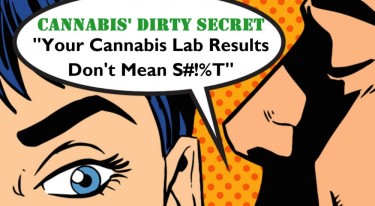Cannabis News
50% of All Cannabis Users Have ADHD?
Published
11 months agoon
By
admin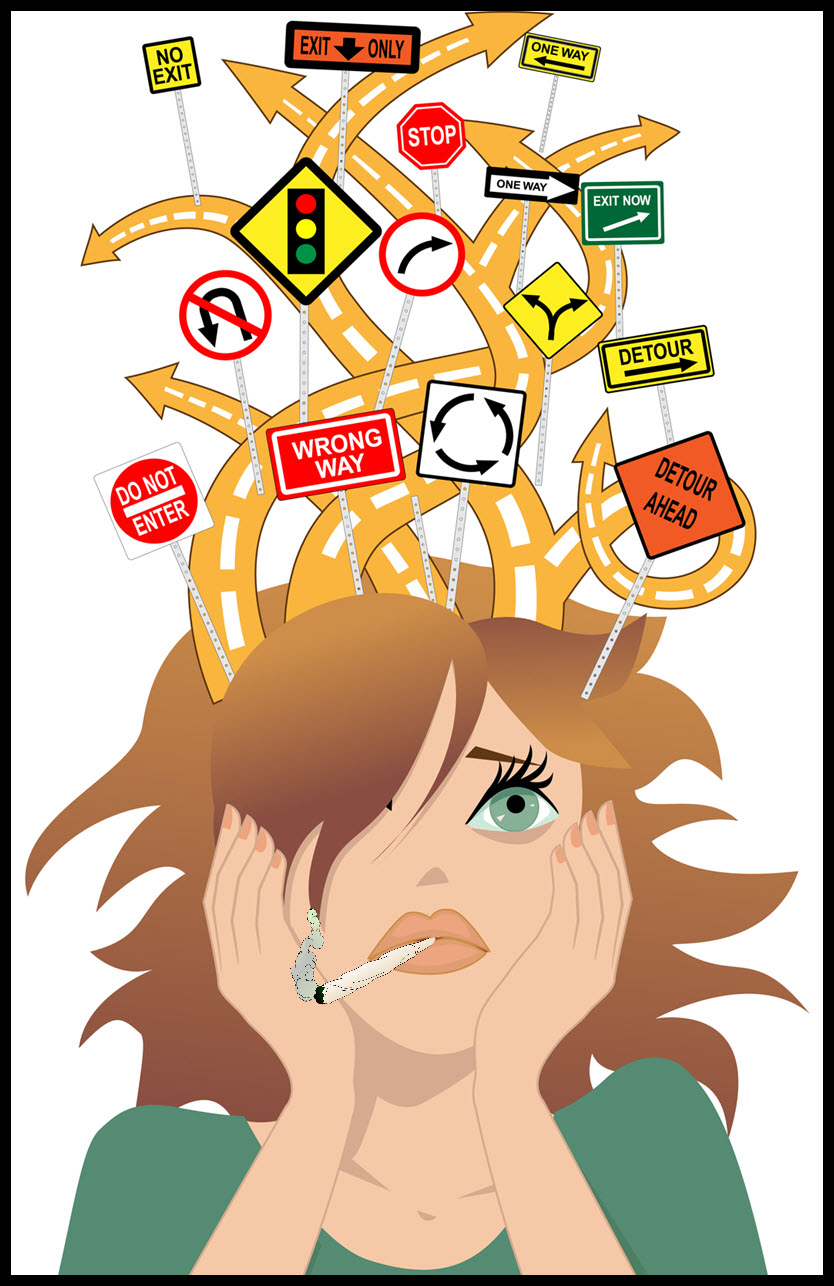
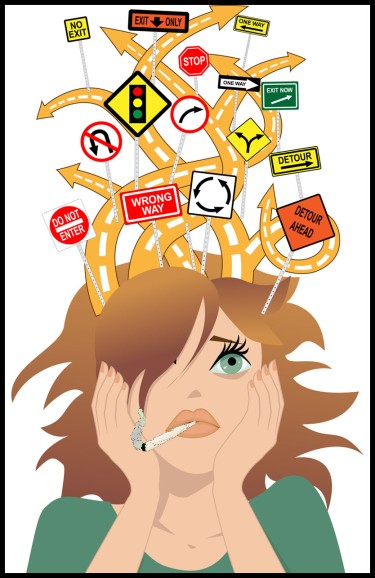
Do Half of All Marijuana Users Have ADHD? Unpacking the Claims and Community Response
The prevalence of Attention Deficit Disorder (ADD) and Attention Deficit Hyperactivity Disorder (ADHD) stands as a focal point of contemporary discussions. These conditions, characterized by symptoms such as inattention, hyperactivity, and impulsivity, continue to garner significant interest from both medical professionals and the general public. To set the stage for our exploration, let’s start by considering the current statistics of ADD/ADHD diagnoses. How widespread are these conditions, and what percentage of the population is navigating the challenges they present?
Parallel to this, the world of cannabis consumption is undergoing its own evolution. The question of how many people regularly use marijuana in the United States is not just a matter of cultural interest but also of public health and policy. Recent data sheds light on the shifting landscape of cannabis use, revealing trends that intersect with various aspects of society, including mental health.
Into this intersection of mental health and cannabis use enters a provocative claim from AdditudeMag.com, a platform dedicated to ADD/ADHD awareness and support. The website posits that half of all cannabis users have ADD or ADHD, a statement that, if true, would have profound implications for understanding the relationship between these disorders and marijuana use. In this article, we delve into this claim, examining its factual basis and the responses it has elicited from the cannabis community, particularly through a vibrant Reddit discussion. Our journey will navigate the intricacies of this assertion, seeking clarity amidst a sea of anecdotes and data.
In the intricate web of health, psychology, and substance use, certain claims stand out for their boldness and potential implications. One such claim, coming from the digital corridors of AdditudeMag, asserts that a staggering 50% of cannabis users are grappling with ADD or ADHD. This assertion, if proven true, could significantly alter our understanding of the relationship between cannabis consumption and these prevalent neurological disorders.
To unravel this claim, let’s dissect the underpinnings of AdditudeMag’s argument. The website, known for its focus on ADD and ADHD, brings forth a set of supporting clauses that merit closer inspection. However, a critical eye must be cast on the nature of these clauses – are they based on comprehensive research, or do they stem from a place of internal bias, skewed towards a particular narrative?
Delving into the content, it becomes apparent that AdditudeMag has a tendency to cherry-pick topics that reinforce a certain viewpoint. The studies they reference, and the manner in which they interpret these studies, raise questions about the scientific robustness of their claims. For instance, one might argue that the website leans heavily on anecdotal evidence or selects research findings that specifically align with their perspective, potentially overlooking a broader scientific consensus or contradictory data.
To validate or debunk their assertions, we must turn to the quoted material directly from their website. However, in the absence of a clear, scientific consensus and given the complexity of the relationship between cannabis use and ADHD, it’s challenging to unequivocally affirm or refute their stance. This ambiguity leaves room for further research and a more nuanced understanding of the interplay between cannabis and neurological conditions like ADHD.
Furthermore, the tone and subject matter of AdditudeMag’s content may inadvertently reflect an internal bias. While their focus on ADHD-related topics is understandable given their specialization, it’s crucial to question whether this focus leads to a myopic view of the broader health implications of cannabis use. Are they adequately considering the multifaceted nature of cannabis consumption, including its varied effects on different individuals and the diverse reasons people turn to it?
While the claim that half of cannabis users have ADD or ADHD is provocative, the current evidence and methodologies employed in supporting this claim require a more critical examination. The scientific community’s ongoing efforts to understand the complexities of cannabis and its impact on neurological conditions will undoubtedly shed more light on this intriguing intersection in the future. So for now, let’s simply say that it’s “not proven to be true”.
The vibrant community of cannabis enthusiasts on Reddit offers a wealth of perspectives on the relationship between marijuana use and ADHD. These candid insights provide a more nuanced view of the varied experiences of individuals who use cannabis, some with ADHD and others without. Let’s delve into a selection of these comments to understand this dynamic better.
Seattlehepcat comments, “With weed, I can focus, but in a more mellow way than the Ritalin.” This sentiment resonates with many users who find cannabis a gentler alternative to traditional ADHD medications. The concept of achieving focus in a less intense manner seems to appeal to those who might otherwise struggle with the side effects of stimulant drugs.
Thisisntmyaccount24 shares a reflection on stereotypes, stating, “It’s funny that the ‘stoner’ stereotype back in the day was a person with essentially a slowed-down brain. As someone with ADHD and anxiety, that is what I am going for a lot of the time.” This observation underlines the irony in how cannabis, often associated with cognitive slowing, can paradoxically aid individuals in managing their hyperactive minds.
Another user, PussyWax, humorously compares using cannabis to “putting blinders on a horse before a two-hour history lecture,” highlighting its ability to narrow focus. This analogy aptly captures how some individuals with ADHD use cannabis to filter out distractions and hone their concentration.
Amid these personal accounts, it’s crucial to address the factual accuracy of AdditudeMag’s claim that half of all cannabis users have ADD or ADHD. While anecdotal evidence suggests that individuals with ADHD may self-medicate at a higher rate, there is no solid user data to support the notion that 50% of all cannabis users have ADD. Such a sweeping generalization does not hold up under scientific scrutiny. It’s more likely that this figure emerged from a subjective analysis rather than a peer-reviewed study, underscoring the need for more comprehensive research in this area.
These Reddit comments paint a vivid picture of the diversity within the cannabis community. They remind us that while some individuals find cannabis helpful for managing ADHD symptoms, others enjoy it for entirely different reasons, challenging the oversimplified narratives often presented in discussions about cannabis use.
In the intricate dance of data interpretation and narrative construction, there’s a thin line between enlightenment and deception. This line becomes especially significant when discussing complex topics like cannabis use and its association with conditions like ADHD. The art of “lying with statistics” is not just a cunning play of numbers; it’s about framing questions and interpreting data in ways that craft a specific narrative, often serving hidden agendas.
Historically, the government has been accused of “weaponizing science” in its approach to cannabis research. A striking example of this is the infamous monkey experiment that purported to show cannabis causing brain damage. In this study, monkeys were subjected to such high levels of cannabis smoke that they essentially suffocated. This methodological flaw led to misleading conclusions about cannabis destroying brain cells, which were later debunked as a hoax. Yet, for a time, this “research” was wielded as a scientific weapon against cannabis legalization.
This historical context makes one cautious about accepting claims without rigorous scrutiny. The assertion that half of all cannabis users have ADD or ADHD, while not inherently implausible, demands a critical evaluation. It’s essential to differentiate between genuinely insightful studies and those that might be tailored to propagate a particular viewpoint. In the absence of peer-reviewed data substantiating this claim, its credibility remains questionable.
The cannabis community, diverse in its composition and motivations, cannot be accurately represented through a singular lens. The vast array of reasons for cannabis use – from therapeutic to recreational – defies reduction to a single statistic. It’s imperative, therefore, to approach such claims with a healthy dose of skepticism, demanding robust, peer-reviewed research that acknowledges the complexity of cannabis use and its multifaceted impact on individuals’ lives.
In the hazy intersection of cannabis use and ADHD, certain truths emerge with clarity from the smoke. A significant number of individuals with ADD or ADHD express a preference for cannabis over conventional prescription medications. This inclination towards self-medication with marijuana underscores a broader narrative – one where individuals with ADHD find solace in the plant’s natural properties, often more attuned to their needs than the effects of traditional pharmaceuticals.
This trend doesn’t just highlight a personal choice; it signals a pressing need for deeper, more nuanced research into cannabis and its potential as a therapeutic agent, especially for ADHD. Imagine a future where cannabis-based medications are specifically tailored for ADHD, harnessing the plant’s benefits while minimizing any drawbacks. Such a prospect isn’t just wishful thinking; it’s a call to action for the scientific community to explore and develop cannabis-based treatments that could revolutionize how we approach ADD/ADHD management.
As we stand at the crossroads of understanding and innovation, the path forward is clear: more research, more empathy, and a willingness to embrace the potential of cannabis in transforming the lives of those with ADHD.
MORE ON MEDICAL MARIJUANA FOR ADHD, READ ON…
DOES MEDICAL MARIJUANA HELP WITH ADHD? THE LATEST STUDY SAYS..
You may like
-


Know About Boxing Day
-


25 Billion Reasons (and Counting) on Why Big Pharma Hates Marijuana Legalization
-


South Africa: Stop arresting cannabis users, Human Rights Commission urges police after complaints about arrests from Rastafarian community.
-


Breaking the Grass Ceiling: Pot firms rethink strategy as young women lead cannabis use
-


California New Laws for 2025: Cannabis Cafes and Entertainment Zones
-


This Company Wants To Pay You To Smoke Marijuana And Write ‘Amazing Reviews’
Cannabis News
25 Billion Reasons (and Counting) on Why Big Pharma Hates Marijuana Legalization
Published
1 day agoon
December 25, 2024By
admin

Real Reason Pharma Hates Weed
Sometimes I forget that not everyone has the same relationship with cannabis as I do. After spending over two decades researching, writing about, and experiencing the medical benefits of this remarkable plant, it’s become as normal to me as taking a daily vitamin. Cannabis is simply part of my wellness toolkit – a natural remedy that promotes balance and healing in ways that continue to amaze me.
But then I catch myself. I remember that for most of the world, cannabis still lurks in the shadows of illegality. Despite the growing wave of legalization, countless people remain in the dark about its therapeutic potential, their understanding clouded by decades of propaganda and misinformation.
Much of this ignorance can be traced back to Big Pharma’s influence over mainstream media and medical research. Through carefully crafted narratives and cherry-picked studies, they’ve painted cannabis as nothing more than a dangerous drug of abuse – just some “hippie grass” with no real medical value. It’s a masterful stroke of corporate manipulation that has kept millions from exploring this ancient medicine.
However, the truth has a way of emerging, especially in our digital age. Recent studies are painting a very different picture of cannabis – one that has pharmaceutical executives breaking out in cold sweats. Not only is cannabis proving effective for a wide range of conditions, but it’s also leading patients to reduce or eliminate their dependence on prescription medications.
Today, we’re going to explore these groundbreaking findings and expose the real reason Big Pharma is terrified of cannabis legalization. When you see the data on how this simple plant is impacting their bottom line, you’ll understand why they’ve fought so hard to keep it illegal.
So grab your favorite strain (if you’re in a legal state, of course), and let’s dive into the fascinating world of medicinal cannabis. What you’re about to learn might just change how you think about this controversial plant – and the companies trying to keep it out of your hands.
A groundbreaking yearlong study just published in the Journal of Pain and Palliative Care Pharmacotherapy has caught my attention, and believe me, it should catch yours too. The research followed 96 patients over 12 months, tracking their experiences with prescribed medical cannabis for chronic pain and mental health conditions. What they found wasn’t just impressive – it was downright revolutionary.
Let’s dive into the numbers, shall we? Within the first six months, patients reported significant pain reduction and improved mental well-being that continued throughout the entire year. We’re not talking about minor improvements here – a whopping 91% of participants reported their pain was “at least a little better,” with 75% declaring it was either “much better” or “very much better.”
But here’s where things get interesting, especially if you’re a pharmaceutical executive. By the study’s end, 55% of participants had reduced their prescription pain medication use, and 45% had cut back on over-the-counter pain medicines. The side effects? Mostly just dry mouth and sleepiness. Compare that to the novel-length list of potential complications from typical prescription pain medications.
And this isn’t an isolated finding. A separate review published in Cureus found that cannabinoids provided significant relief from chronic pain (33% versus 15% with placebo) with “minimal to no side effects.” The researchers went so far as to call it a “life-changing alternative” to conventional pharmaceuticals.
Another recent study revealed that 57% of patients with chronic musculoskeletal pain found cannabis more effective than their other analgesic medications, with 40% reducing their use of traditional painkillers after starting cannabis. The American Medical Association’s own research showed “significant improvements” in quality of life for people with chronic conditions like pain and insomnia, with effects “largely sustained” over time.
See the pattern emerging? Across multiple studies, we’re consistently seeing two things: cannabis works, and when it works, people need fewer pharmaceutical drugs. This isn’t just about pain medication either – patients reported decreasing their use of medications for depression, anxiety, and sleep problems too.
For those of us who understand cannabis, these findings aren’t surprising. But for Big Pharma, they’re absolutely terrifying. When half your patient base starts reducing their medication use by 40-55%, that’s not just a dent in profits – it’s a crater.
But here’s the kicker: the numbers I’ve just shared with you are just the tip of the iceberg. In our next segment, we’re going to translate these percentage drops in medication use into cold, hard cash. We’ll see exactly why pharmaceutical companies are spending millions lobbying against cannabis legalization, and trust me, when you see the figures, you’ll understand why they’re sweating.
Because let’s be honest – this isn’t about patient welfare anymore. It’s about protecting profit margins. And nothing threatens those margins quite like a plant people can grow in their backyard.
Let’s put these numbers into perspective, shall we? When we look at just one category of pharmaceutical drugs – say, prescription pain medications – we’re talking about a market worth over $25 billion annually. Now, imagine watching 40-55% of your customers walking away, choosing instead to use a plant they might be growing next to their tomatoes. That’s the nightmare Big Pharma is facing.
Research indicates that pharmaceutical companies lose approximately $10 billion annually in states with medical marijuana programs. And that’s just the tip of the proverbial iceberg. As more states legalize and more people discover cannabis’s therapeutic potential, these losses are projected to grow exponentially.
But here’s what really keeps pharmaceutical executives up at night: they can’t monopolize cannabis like they do with their synthetic drugs. Sure, they can create cannabis-based medications (and they are), but they can’t patent the plant itself. Mother Nature, in her infinite wisdom, made cannabis remarkably easy to grow and process.
Think about it – any moderately skilled home grower can produce a variety of cannabis medicines right in their backyard. Want to make a topical salve for arthritis? Just infuse some cannabis in coconut oil. Need something for sleep? You can make your own tincture. Looking for anti-inflammatory benefits without the high? Raw cannabis juice or leaves will do the trick. No pharmaceutical company required.
This accessibility terrifies Big Pharma because it completely circumvents their carefully controlled production and distribution systems. You don’t need a sophisticated laboratory or millions in equipment to create effective cannabis medicine. You need soil, water, sunlight, and a little knowledge passed down through generations of growers.
Even more threatening is cannabis’s versatility. One plant can potentially replace multiple medications. A patient might use cannabis to manage their chronic pain (goodbye opioids), help them sleep (see ya, Ambien), and ease their anxiety (farewell, Xanax). That’s three revenue streams dried up from a single plant growing in someone’s garden.
And let’s not forget about raw cannabis consumption – a method that completely bypasses the need for processing altogether. Raw cannabis contains THCA and CBDA (the acidic precursors to THC and CBD), along with hundreds of other beneficial compounds including terpenes and flavonoids. These compounds offer significant therapeutic benefits without any psychoactive effects, essentially giving patients a nutrient-dense superfood that doubles as medicine.
This is the real reason behind Big Pharma’s anti-cannabis stance. It’s not about safety concerns or public health – it’s about protecting their bottom line from a plant that threatens their entire business model. Cannabis represents everything they fear: a natural, effective medicine that people can grow themselves, process in their kitchens, and use to treat multiple conditions without ever stepping foot in a pharmacy.
No wonder they’re spending millions on lobbying against legalization. When your profit margin is threatened by a plant that literally grows like a weed, you’ve got a serious problem on your hands.
JG
Now let’s write a 350-word conclusion entitled, “The Sticky Bottom Line”
In this segment focus on:
* I believe that everyone should have access to medicine they can grow. I even favor people growing their own opium, coca plant, psychedelic mushrooms, etc. This all in the name of bodily autonomy.
* Getting people off pharmaceuticals and taking health into their own hands is one of the best things that could happen for humanity.
* The science backs cannabis as a medicine, and each day that we continue to stall on making it widely available to people in need, is another day we perpetuate suffering for no reason other than greed.
Here’s a 350-word “Sticky Bottom Line” conclusion:
Let me be perfectly clear about where I stand: I believe every human being should have the right to grow their own medicine. Whether it’s cannabis, poppies, coca plants, or mushrooms, bodily autonomy means having sovereignty over your own consciousness and the ability to manage your own health. The idea that we need corporate gatekeepers to mediate our relationship with plants that have been used medicinally for thousands of years is not just absurd – it’s morally reprehensible.
The evidence we’ve explored today paints a crystal clear picture: cannabis works. It helps people manage pain, reduces anxiety, improves sleep, and allows countless patients to reduce or eliminate their dependence on pharmaceutical drugs. This isn’t just anecdotal anymore – it’s backed by rigorous scientific research. Yet millions still suffer needlessly because an industry more concerned with profits than patients continues to obstruct access to this healing plant.
Every day we delay full cannabis legalization, we’re choosing to prioritize corporate profits over human welfare. We’re forcing people to remain dependent on expensive, often addictive medications when they could be growing a safer alternative in their backyard. We’re maintaining a system where healthcare is a privilege rather than a right, where healing is commodified and monetized rather than democratized and accessible.
The shift away from pharmaceutical dependence toward natural, self-grown medicine represents one of the most significant opportunities for improving human health and wellbeing in our lifetime. It’s not just about cannabis – it’s about reclaiming our right to heal ourselves, to make informed choices about our health, and to access the therapeutic tools nature has provided us.
The science is clear. The benefits are proven. The only thing standing between millions of people and potential relief is a profit-driven system that values patents over patients. It’s time to choose: will we continue to support a system that prioritizes profits over people, or will we finally embrace the healing power of plants that grow freely under the sun?
The choice, like the bottom line, is sticky indeed.
Inspiration: https://www.marijuanamoment.net/medical-marijuana-improves-chronic
-pain-and-mental-health-symptoms-while-reducing-prescription-drug-use-study-shows/
BIG PHARMA BLOCKING MARIJUANA LEGALIZATION, READ ON…
Cannabis News
How Do You Stop Lab-Shopping for the Highest THC Results?
Published
2 days agoon
December 24, 2024By
admin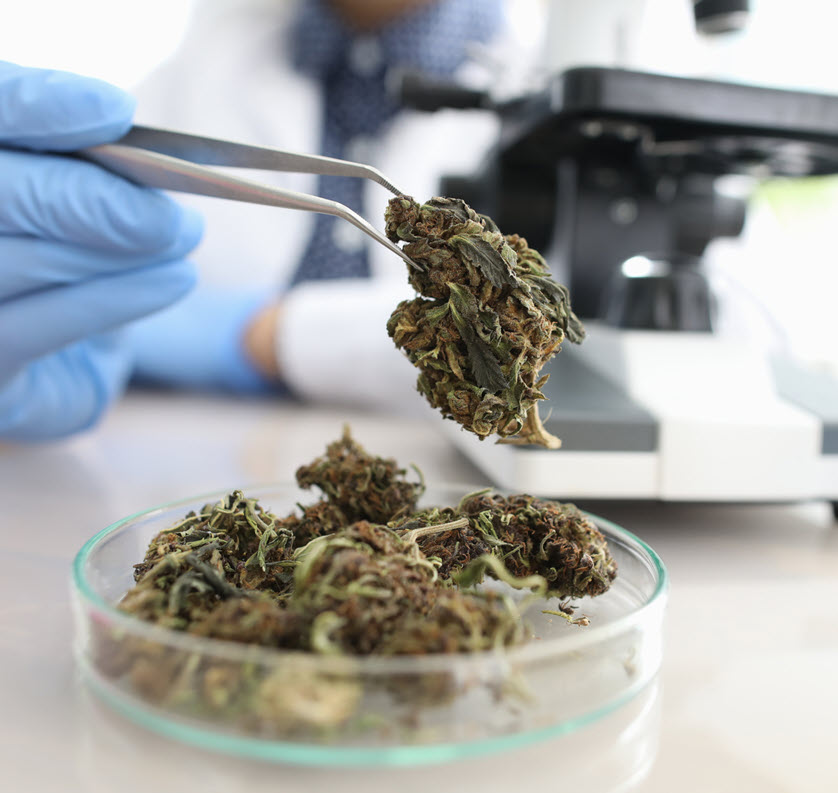
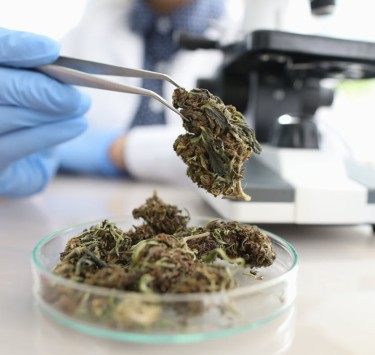
In a decisive move aimed at bolstering consumer safety and ensuring the integrity of cannabis products, Massachusetts regulators have mandated that all cannabis products must undergo testing at a single, licensed laboratory. This new regulation comes in response to the growing issue of “lab shopping,” where cannabis producers seek favorable testing results by sending their products to multiple laboratories. The Massachusetts Cannabis Control Commission (CCC) announced this significant regulatory change after extensive consultations with industry stakeholders, public health officials, and consumer advocates.
This article explores the implications of this regulation for the cannabis industry, consumers, and public health. It also examines the broader context of cannabis regulation in Massachusetts and the potential impact of this decision on the future of the state’s cannabis market.
Understanding Lab Shopping
What is Lab Shopping?
Lab shopping refers to the practice where cannabis producers send their products to various testing laboratories in search of the most favorable results. Producers may choose labs based on their reputation for leniency or their history of providing positive results. This behavior can lead to significant discrepancies in product safety assessments and quality assurance.
The Risks Associated with Lab Shopping
1. Consumer Health Risks: The primary concern surrounding lab shopping is the potential risk it poses to consumer health. Inconsistent testing results mean that products containing harmful contaminants—such as pesticides, heavy metals, or mold—may be sold without proper scrutiny. This can lead to serious health issues for consumers who unknowingly purchase tainted products.
2. Market Integrity: Lab shopping undermines the integrity of the legal cannabis market. When consumers cannot trust that products have been tested rigorously and uniformly, it erodes confidence in legal cannabis sales and can drive customers back to illicit markets where safety standards are nonexistent.
3. Regulatory Challenges: For regulators like the CCC, lab shopping complicates enforcement efforts. It becomes increasingly difficult to monitor compliance when producers can easily switch labs to obtain favorable results, making it challenging to ensure that all products meet established safety standards.
The Regulatory Response
The Role of the Cannabis Control Commission (CCC)
The Massachusetts Cannabis Control Commission is tasked with regulating the state’s cannabis industry. As part of its mandate, the CCC has worked diligently to establish a comprehensive regulatory framework that governs various aspects of cannabis production and sale. However, as the industry has evolved, so too have the challenges associated with ensuring product safety and quality.
In light of growing concerns about lab shopping and its implications for public health and safety, the CCC recognized the need for a more robust regulatory framework. After extensive discussions with industry stakeholders and public health officials, the commission concluded that a single-lab testing requirement was necessary to address these issues effectively.
Implementation of Single-Lab Testing
In late 2023, following thorough deliberation and stakeholder engagement, the CCC announced its new regulation mandating that all cannabis products must be tested by a single licensed laboratory before they can be sold to consumers. This decision aims to achieve several key objectives:
-
Standardize Testing Protocols: By requiring that all products be tested by a single lab, regulators can ensure that all products are subject to consistent testing standards. This uniformity is crucial for maintaining product quality and safety across the market.
-
Enhance Accountability: A single-lab requirement makes it easier for regulators to hold laboratories accountable for their testing practices. If discrepancies arise in testing results, it will be clear which laboratory conducted the tests, facilitating more straightforward investigations.
-
Improve Consumer Confidence: With consistent testing results across all products, consumers can feel more secure in their purchases. This increased confidence is vital for fostering a healthy legal cannabis market in Massachusetts.
Implications of Single-Lab Testing
For Producers
1. Increased Accountability: Producers will need to establish relationships with specific laboratories and ensure that their products meet stringent quality standards before submission for testing. This shift will require producers to invest more in quality control measures throughout their production processes.
2. Potential Cost Implications: While single-lab testing may streamline processes for some producers, it could also lead to increased costs if producers are required to pay higher fees for comprehensive testing services. Smaller producers may find it particularly challenging to absorb these costs.
3. Adaptation Period: Producers will need time to adjust their operations and supply chains to comply with this new regulation. This may involve reevaluating partnerships with existing labs or investing in new quality control measures.
4. Impact on Product Development: The requirement for single-lab testing may also influence how producers develop new products. With fewer laboratories available for testing, producers may need to plan their product launches more carefully and allow additional time for testing processes.
For Laboratories
1. Increased Demand for Services: Licensed laboratories may experience an increase in demand as producers consolidate their testing needs with fewer facilities. This could lead to higher revenues for labs but also increased pressure on them to maintain high-quality standards amidst growing workloads.
2. Need for Enhanced Capabilities: Laboratories will need to ensure they have the capacity and technology necessary to handle increased volumes of samples while maintaining rigorous quality control measures. This may require investments in new equipment or hiring additional staff.
3. Regulatory Compliance: Laboratories will face heightened scrutiny from regulators as they become key players in ensuring product safety. They will need to demonstrate compliance with all relevant regulations and maintain transparent practices regarding their testing methodologies.
For Consumers
1. Improved Product Safety: The primary benefit for consumers is enhanced safety assurance. With standardized testing protocols in place, consumers can trust that cannabis products have been thoroughly vetted for contaminants and potency before reaching store shelves.
2. Greater Transparency: As part of this regulatory shift, there may be increased transparency regarding testing results and laboratory practices. Consumers will have access to clearer information about what goes into their cannabis products, empowering them to make informed choices.
3. Potential Price Increases: While improved safety is paramount, there is a possibility that compliance costs could be passed on to consumers through higher prices for cannabis products. Producers may need to adjust their pricing structures in response to increased operational costs associated with single-lab testing.
Cannabis Regulation in Massachusetts
Historical Overview
Massachusetts was one of the first states in New England to legalize recreational cannabis use following the passage of Question 4 in 2016. The legalization marked a significant shift in public policy and opened up a new economic sector within the state. However, as with any emerging industry, challenges quickly arose—particularly concerning product safety and quality assurance.
Existing Regulatory Framework
Prior to the introduction of single-lab testing regulations, Massachusetts had established a comprehensive regulatory framework governing various aspects of cannabis production and sale:
Despite these measures, lab shopping highlighted gaps in enforcement and compliance that necessitated further action from regulators.
Industry Reactions
Support from Public Health Advocates
Public health advocates have largely welcomed the CCC’s decision to implement single-lab testing as a crucial step toward safeguarding public health by ensuring that all cannabis products meet consistent safety standards. Many believe this regulation will help prevent contaminated or substandard products from reaching consumers while bolstering trust in legal cannabis sales.
Dr. Emily Thompson, a public health expert at Harvard University, stated, “This regulation is essential for protecting consumers from potential health risks associated with contaminated cannabis products.”
Concerns from Industry Stakeholders
Conversely, some industry stakeholders have expressed concerns about potential drawbacks:
1. Operational Challenges: Smaller producers may find it difficult to navigate relationships with larger laboratories or face delays in getting their products tested due to increased demand at those facilities.
2. Innovation Stifling: Critics argue that requiring single-lab testing could stifle innovation within the industry by limiting producers’ options for exploring different testing methodologies or technologies offered by various labs.
3. Market Dynamics: There are worries that this regulation could create monopolistic tendencies within laboratory services if only a few labs dominate the market due to increased demand from producers seeking reliable test results.
4. Impact on Small Businesses: Small-scale cultivators might struggle more than larger companies due to limited resources and access to high-quality labs capable of meeting stringent requirements without significantly raising costs.
Future Outlook
As Massachusetts implements this new regulation mandating single-lab testing for all cannabis products sold within its borders, it sets an important precedent that other states may consider as they navigate similar challenges within their own burgeoning cannabis markets.
Potential National Implications
The decision by Massachusetts regulators could influence national discussions around cannabis regulation as other states look toward creating frameworks that prioritize consumer safety while fostering industry growth:
-
Increased Interest from Other States: States grappling with similar issues related to lab shopping may look closely at Massachusetts’ approach as they develop their own regulations.
-
Collaboration Among States: As states continue legalizing recreational marijuana use across the country, there may be opportunities for collaboration on best practices regarding product safety standards and laboratory oversight.
-
Federal Considerations: With ongoing discussions about federal legalization of marijuana gaining traction nationally—especially amid shifting political landscapes—regulatory models like those emerging from Massachusetts could serve as templates for future federal guidelines governing cannabis production and sale across state lines.
Conclusion
The Massachusetts Cannabis Control Commission’s mandate for single-lab testing represents a pivotal shift in evaluating cannabis products for safety and quality assurance within one of the nation’s most dynamic legal marijuana markets. By targeting the issue of lab shopping, this regulation prioritizes consumer protection, aiming to enhance public health outcomes and rebuild confidence in the safety of legalized cannabis products. While the transition poses challenges for producers adapting operational processes and laboratories scaling their capabilities, the regulation seeks to balance fostering innovation in an evolving industry with rigorous oversight mechanisms. As Massachusetts refines its regulatory framework, balancing the interests of regulators and profit-driven stakeholders, collaboration will be essential to thriving under these new guidelines. This change not only advances the state’s cannabis sector but also sets a potential standard for other states to ensure safe consumption and responsible business practices in the growing marijuana industry.
LAB SHOPPING FOR HIGH THC RESULTS? READ ON…
Cannabis News
Happy Holidays from The Canna Law Blog
Published
2 days agoon
December 24, 2024By
admin
Wishing all of our readers, along with friends and families, the very best this holiday season.
Whether you celebrate Hanukkah, Christmas, Kwanzaa, Winter Solstice, Festivus, or something else, we hope you can kick back and enjoy this wonderful time of the year.
The post Happy Holidays from The Canna Law Blog appeared first on Harris Sliwoski LLP.

Know About Boxing Day

25 Billion Reasons (and Counting) on Why Big Pharma Hates Marijuana Legalization

South Africa: Stop arresting cannabis users, Human Rights Commission urges police after complaints about arrests from Rastafarian community.

Breaking the Grass Ceiling: Pot firms rethink strategy as young women lead cannabis use

California New Laws for 2025: Cannabis Cafes and Entertainment Zones

This Company Wants To Pay You To Smoke Marijuana And Write ‘Amazing Reviews’

Is it legal to fly with marijuana? Here are the laws you need to know

How Much Does an Ounce of Cannabis Flower Cost Entering 2025?

New York Governor Signs Bills To Resume Marijuana Farmers Markets And Classify Cannabis As Agricultural Product

Cannabis Can Help With Holiday Stomach Issues

Distressed Cannabis Business Takeaways – Canna Law Blog™

United States: Alex Malyshev And Melinda Fellner Discuss The Intersection Of Tax And Cannabis In New Video Series – Part VI: Licensing (Video)

What you Need to Know

Drug Testing for Marijuana – The Joint Blog

NCIA Write About Their Equity Scholarship Program

It has been a wild news week – here’s how CBD and weed can help you relax

Cannabis, alcohol firm SNDL loses CA$372.4 million in 2022

A new April 20 cannabis contest includes a $40,000 purse

Your Go-To Source for Cannabis Logos and Designs

UArizona launches online cannabis compliance online course
Trending
-

 Cannabis News2 years ago
Cannabis News2 years agoDistressed Cannabis Business Takeaways – Canna Law Blog™
-

 One-Hit Wonders2 years ago
One-Hit Wonders2 years agoUnited States: Alex Malyshev And Melinda Fellner Discuss The Intersection Of Tax And Cannabis In New Video Series – Part VI: Licensing (Video)
-

 Cannabis 1012 years ago
Cannabis 1012 years agoWhat you Need to Know
-

 drug testing1 year ago
drug testing1 year agoDrug Testing for Marijuana – The Joint Blog
-

 Education2 years ago
Education2 years agoNCIA Write About Their Equity Scholarship Program
-

 Cannabis2 years ago
Cannabis2 years agoIt has been a wild news week – here’s how CBD and weed can help you relax
-

 Marijuana Business Daily2 years ago
Marijuana Business Daily2 years agoCannabis, alcohol firm SNDL loses CA$372.4 million in 2022
-

 California2 years ago
California2 years agoA new April 20 cannabis contest includes a $40,000 purse






